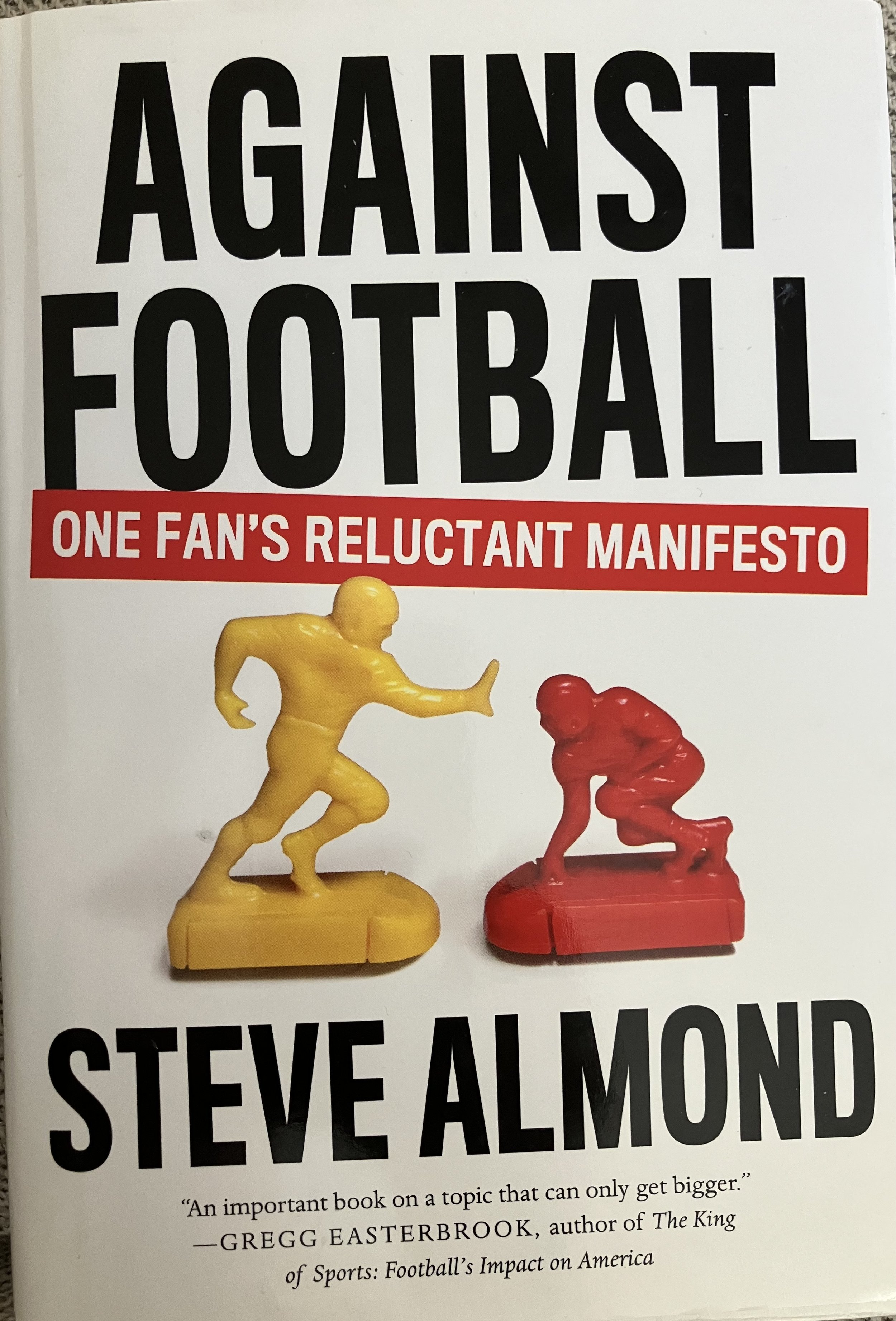Not So Super
I don’t plan to watch the Super Bowl today, which, I know, marks me as a defective American. It won’t be the first time I have arranged counterprogramming for the nation’s biggest sporting event. I just don’t enjoy watching the inherent brutality of professional football narrated by NFL-chummy announcers who will sanitize the violence while remarking on the “good clean hits.” Enough already.
The brutality was not always apparent to me when I was younger and caught up in the excitement of the games at Carrollton High, then St. Mark’s, then Kern Tipps’ broadcasts of Southwest Conference games, and, of course, the Cowboys. Sure, it was a rough sport, but all the more reason it was compelling, and the skill positions required such agilty, speed and grace. What’s not to like? But I had no understanding then of the physical punishment and lasting injuries most of those guys were enduring.
I even played football at St. Mark’s through the 9th grade, against my father’s wishes (not a Texan). Despite occasionally getting smooshed, I liked being a quarterback, running and passing and calling plays. But on the other side of the ball, cracking helmets with opposing ball carriers, as required, was not my thing. By sophomore year, I had become a spotter for the P.A. announcers in the booth while scribbling a diary of the plays called and the results, compiling a chronology of the game the head coach could review and analyze. This fit neatly into writing about the games for the school paper. More my thing.
Even if I wasn’t cut out for the gridiron and preferred baseball and soccer as sports to take part in, football was still football, the pinnacle of athletics that attracted the best athletes at schools and colleges everywhere.
Only gradually did my view of the sport change, beginning with reading exposes of the college game (Meat on the Hoof) and the NFL (North Dallas Forty) in the 1970s that revealed the inhuman treatment of players at both levels. It was hard to celebrate those remarkable touchdown catches knowing that behind the glory, big time universities (Texas) and pro teams (the Cowboys) chewed up young men as cynically as World War I generals.
After the revelations of the serious damage to the brain (CTE) caused not just by concussions, but the habitual cracking of helmets at the line on every play, I figured schools would abandon the game, with administrators lamenting the ignorance that ever allowed them to endorse such an unhealthy activity in the first place. So far, this does not appear to have happened despite former pros like the great Cowboys running back Tony Dorsett going public with their alarming cognitive declines and some, like Aaron Hernandez, committing suicide.
Denial of this grim reality remains an essential tool for fans and parents who cannot abide the thought of giving up football no matter its clear and present danger to the minds and and bodies of the young men who play it. There’s too much money at stake, certainly in the SEC and the NFL. Money and tradition. Boola-boola, the Army-Navy game, reverence for the Friday Night Lights in small towns across Texas and the nation, those titillating Cowboys cheerleaders, Super Bowl parties. Americana, baby. You want to take that away?
The journalist Steve Almond, once a devoted fan of the Oakland Raiders, collected some of these same thoughts in the 2014 book Against Football that documents his painful acknowledgment of football’s darker truths and his subsequent withdrawal from the sport’s intoxicating distractions. Almond reasons why he no longer watches football and has forsaken his former faves, the Raiders. Having looked at the statistics of life expectancies being shortened by playing in the NFL, the likelihood of career-ending ending injuries at an early age, CTE casualties, the wealthy cabal of owners sharing huge profits earned on the backs of Black men (53 percent of players in the NFL are African-American) and the league’s hypocrisy about all of it, his conscience won’t allow him to be part of its massive audience.
Against Football predates San Francisco QB Colin Kaepernick being blacklisted by NFL owners a few years ago for daring to exercise his Constitutional rights in taking a knee during the national anthem to protest police violence against people of color. But I suspect Almond would have agreed Kaepernick was simply pointing out that America was not a “land of the free” for everybody, as was apparent to anyone watching the news. As punishment for doing that, Kaepernick never played another down in the NFL, not that the league’s billionaire owners would ever admit to such collusion. Instead, through their corporate shill, Roger Goodell, they pretend to advocate for “ending racism.” Right.
This screaming hypocrisy extends to the game’s troubling violence as well. “You hate to see that,” you will hear the Fox play-by-play guys say today if a quarterback for the Eagles or a pass receiver for the Chiefs gets crumpled so hard he can’t get up. But this is as big a fib as Fox itself. The truth is, the vicious hits and collisions are a leading reason the sport is so popular – and why flag football has not replaced the NFL as our national obsession.
You can see for yourself by watching the Super Bowl. Or not.
